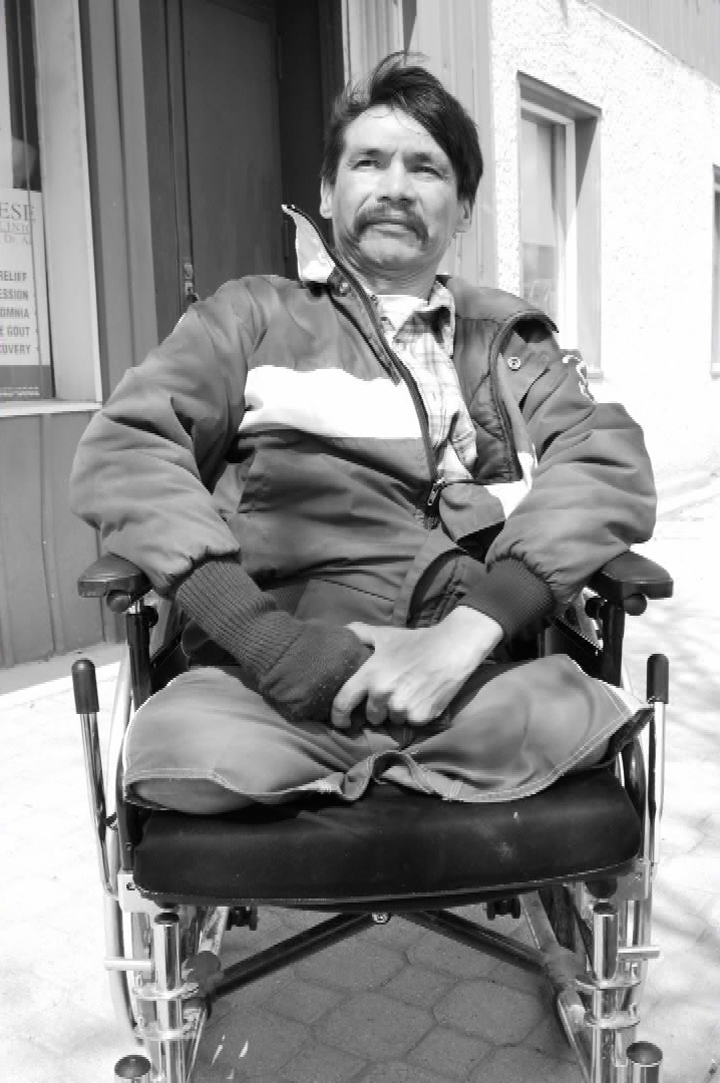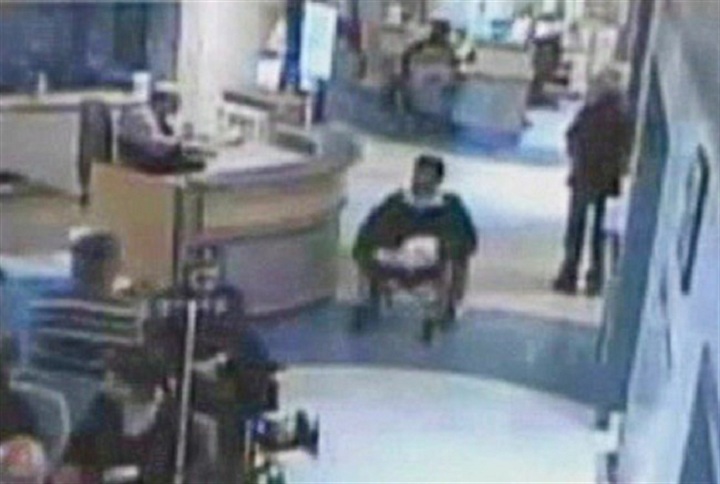WINNIPEG – The family of a man who died during a 34-hour wait in a Winnipeg emergency room is asking Manitoba’s highest court to reinstate its lawsuit against a health authority.

Lawyer Murray Trachtenberg told three Appeal Court justices Monday that Brian Sinclair’s charter rights were violated when he died in a hospital waiting room in 2008.
READ MORE: Inquest into man’s death in ER concludes
Lower court judges struck down the heart of the family’s lawsuit against the Winnipeg Regional Health Authority, saying Sinclair’s charter rights died with him.
But Trachtenberg said it’s absurd that a man who died because he didn’t receive the care due him under the Charter of Rights and Freedoms isn’t allowed to sue because he’s dead.
“The breaches in question took place while Mr. Sinclair was alive,” Trachtenberg told the court.
“The alleged breaches are the very actions and inactions which caused his death and necessitate his personal representative to bring forward the claim as he is obviously incapable of doing so.”
Another Sinclair family lawyer said the family is bothered by the idea that no one can sue the hospital where a man died simply because he is dead.
“The family’s objective in this lawsuit is to make sure that the people responsible for Brian Sinclair’s death are held accountable,” said Vilko Zbogar, the lawyer for the Sinclair estate and family.
“Sinclair’s family is bothered by the interpretation that nobody can sue the hospital that neglected their loved one for 34 hours is the very reason he is dead,” said Zbogar. “They are bothered by that and they don’t think it is right.”
Sinclair, a 45-year-old double amputee, died of a treatable bladder infection while waiting for care at Winnipeg’s Health Sciences Centre.
Although Sinclair spoke to a triage aide when he first arrived at the emergency room, he was never formally entered into the hospital’s system. He languished in the waiting room for hours, growing sicker and vomiting several times, but was never asked if he was okay or awaiting care.
By the time Sinclair was discovered dead, rigor mortis had set in.
An inquest into his death heard many employees assumed he was drunk, seeking shelter or had been seen and was waiting for a ride.
FULL COVERAGE: Brian Sinclair
The Winnipeg Regional Health Authority has argued the Charter of Rights and Freedoms doesn’t allow relatives to pursue a claim on behalf of a dead person.
- What is a halal mortgage? How interest-free home financing works in Canada
- Ontario doctors offer solutions to help address shortage of family physicians
- Capital gains changes are ‘really fair,’ Freeland says, as doctors cry foul
- Canada will take bigger economic hit than U.S. if Trump wins election: report
That interpretation of the law means the health authority won’t be held to account, Trachtenberg said.
“If a state authority, by breaching someone’s rights contrary to the Charter causes the death of that person … no one is able to hold that state authority accountable,” he said.
“That is intolerable … and contrary to the whole spirit of the Charter.”
Sinclair’s family initially sued the health authority, individual employees who were on duty the weekend Sinclair died and the government of Manitoba. The family has since dropped its action against the province.
The health authority has paid out $110,000 in damages to the Sinclair family “to settle a portion of the lawsuit that dealt directly with the family’s claim for loss of care, guidance and companionship for his wrongful death,” the authority said in a 2012 court hearing.
If the appeal is denied, Sinclair family lawyers say they can still pursue the health authority for costs incurred by his relatives for participating in the inquest, as well as for compensation for pain and suffering caused by his death.
A claim that the WRHA was negligent because it disclosed personal information about Sinclair to the public after he died was also struck by the lower court. The violation of privacy has been difficult on Sinclair’s family, Zbogar said.
“It bothers the family that a state institution responsible for their loved ones can go out into the public days after Sinclair’s death and pronounce falsely that Mr. Sinclair never approached the triage desk to be seen implying somehow perhaps that he may have been responsible for his own demise and that bothers them terribly,” Zbogar said.
The three Court of Appeal judges has reserved their decision. It isn’t known how long they will take.
— With files from Tamara Forlanski, Global News




Comments